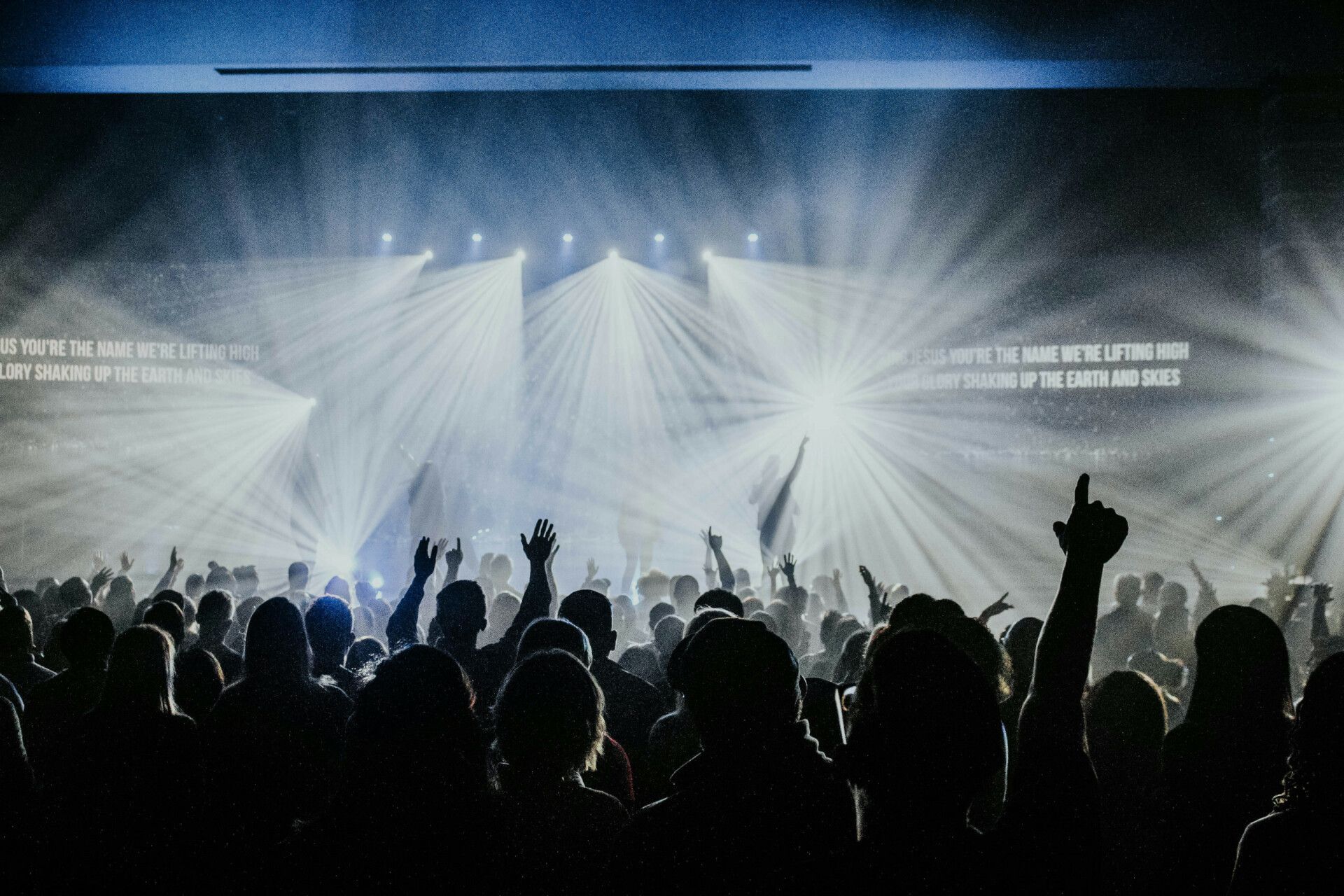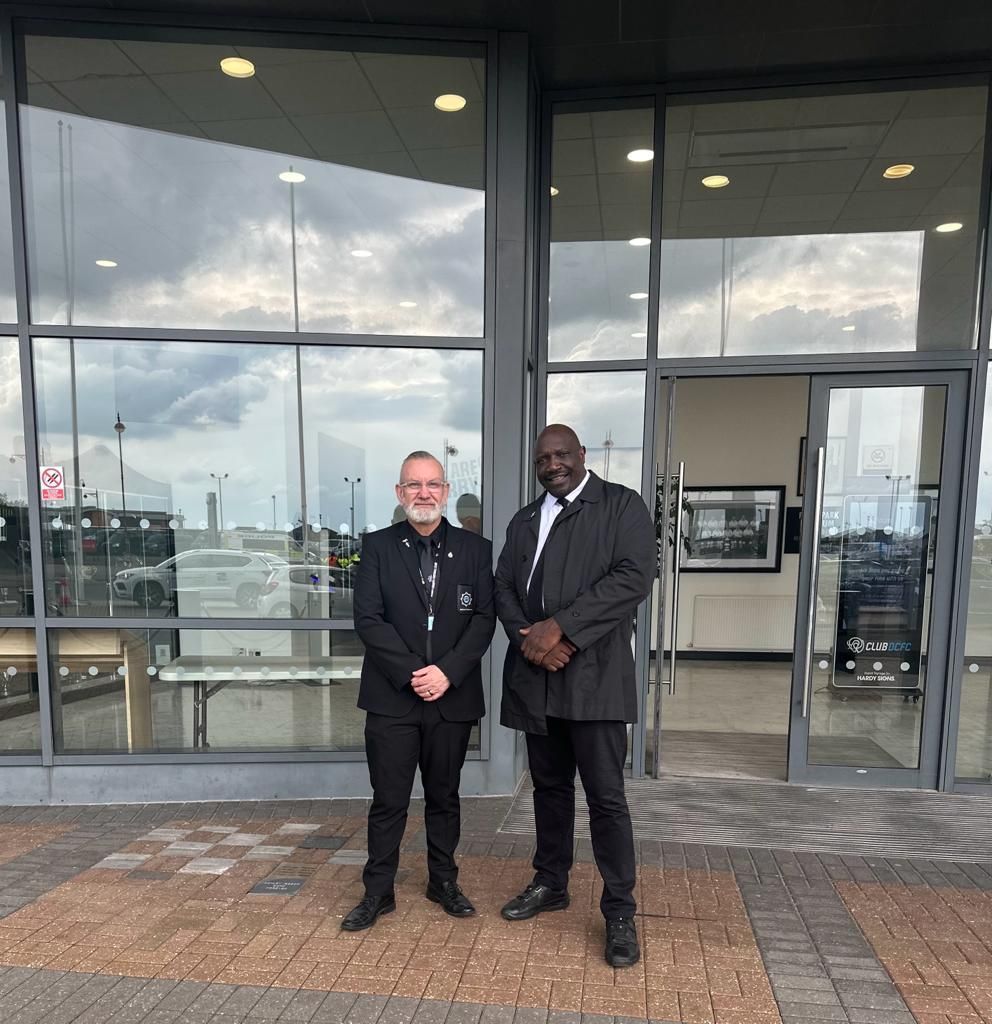The Responsibilities of Event Security - What Are They?
When staging an event, identifying potential security risks stands as a fundamental starting point with event security. Assessing threats shapes the foundation of a robust security plan, tailored to the unique demands of each event, and requires a systematic approach to prioritising tasks, ensuring each element of the event is underpinned by meticulous attention to safety. Event security ultimately safeguards guests, staff, property and more.
Crowd Control / Management
Effective crowd control involves a variety of methods to direct the flow of attendees and prevent congestion. Key strategies include implementing well-marked routes, clear signage, and flexible barriers to efficiently guide the movement of people but minimise bottlenecks. A thorough understanding of the venue's layout is essential, allowing security teams to identify high-traffic areas. To manage crowd density and facilitate the smooth movement of people, organisers utilise queue systems, dedicated pathways, and strategic entry procedures. Personnel trained in crowd behaviour are positioned throughout the venue to monitor attendee movement and address any issues quickly. This is supported by communication systems for swift coordination. Mitigating crowd-related incidents involves regular security sweeps and de-escalation techniques to resolve conflicts peacefully. Continuous engagement with those attending the event, aided by other forms of monitoring, helps detect disruptions early while maintaining clear emergency exits and ensures venue safety and readiness for evacuations. This approach combines proactive planning, the positioning of resources, and adaptable response mechanisms to ensure attendees safety and comfort throughout the event.
Streamlining Access Points
Effective event security relies on efficient access control and meticulous entry point management. Security personnel implement strict protocols to regulate the entry and exit of people, preventing unauthorised access and potential security breaches. The establishment of a robust perimeter involves the deployment of physical barriers, turnstiles, and relevant access systems, with security teams monitoring and adjusting these measures in response to crowd dynamics and emerging threats. Validating people's credentials is fundamental to access control, typically involving tickets, badges, and identification checks. Some events may incorporate more sophisticated methods, including biometric scanners or RFID technology, to enhance verification accuracy. At entry points, staff conduct comprehensive screenings to deter unauthorised entry, efficiently operate scanning equipment for checks, and maintain a vigilant presence to address any conflicts arising from access issues. Clear communication channels among security team members are essential for rapid incident response, thereby reinforcing overall event security and operational cohesion. This diverse approach combines technological solutions with human expertise to create a secure environment while facilitating a smooth attendee flow.
Surveillance and Monitoring
Event security relies heavily on surveillance and monitoring technologies. Utilising security cameras, alongside other techniques, including motion detectors and more, allows security teams to monitor attendee movements and behaviours closely. Strategically positioned surveillance equipment ensures comprehensive coverage and enables real-time analysis to identify potential threats promptly. Continuous monitoring is fundamental to guest safety throughout the event, with on-site and remote security personnel remaining vigilant and ready to deploy response teams at any sign of disturbance.
Emergency Response and Evacuation Procedures
Event security teams are tasked with developing and implementing efficient emergency response and evacuation procedures to ensure guest safety during unexpected situations. Comprehensive evacuation plans are created, detailing primary and secondary exit routes, accessibility considerations, and venue-specific limitations. Each team member understands their role and responsibilities through collaboration with event staff and other relevant personnel. This proactive approach minimises confusion and delays, enabling swift and coordinated action when it's needed most. During emergencies, security teams use their training to guide attendees calmly toward exits, maintain order, and communicate effectively with event planners and emergency services to streamline evacuation efforts. Their preparedness and decisive actions are pivotal in safeguarding guests and mitigating potential risks, highlighting the critical role of event security in maintaining a secure environment.
Collaboration with Local Police and Other Agencies
Effective event security relies on strategic collaboration with local police and other agencies from the early planning stages through to execution. This partnership ensures a comprehensive security framework that secures the event perimeter and interior and adheres to local laws and regulations. Direct communication facilitates a unified response during unforeseen incidents, with the police and other agencies providing crucial resources and expertise, including additional personnel. Understanding relevant regulations/laws helps event security teams develop compliant contingency plans, minimising legal risks. Mutual information-sharing sessions enable both parties to align security strategies, ensuring a cohesive approach to event safety and readiness to address any potential threats effectively.
Optimising Bag and Personal Item Checks
Bag and personal item checks are integral to event security, acting as a deterrent against potential threats that could endanger attendees. Carrying out these checks is essential to detect any prohibited items before they enter the venue. Clearly defined search policies establish a systematic approach to inspecting bags and personal belongings, outlining what can be brought in and what is prohibited. These guidelines also dictate procedures for handling confiscated items, including the potential involvement of the police. Balancing thoroughness with a positive guest experience requires training that ensures rigorous yet respectful searches. This approach aims to maintain efficient entry processes that minimise queues and wait times, enhancing overall attendee satisfaction while prioritising safety.
Alcohol Abuse Monitoring
Monitoring alcohol abuse and more is critical in event security, focusing on identifying and managing individuals showing signs of intoxication. In cases of intoxication, trained staff intervene discreetly, providing assistance such as safe transport or medical aid as needed. Additional supportive services like quiet rooms or on-site counselling may be offered to ensure attendees' well-being until they can safely leave the venue. This comprehensive approach aims to reduce any risks while maintaining a secure and enjoyable event environment.
VIP and Special Guest Security
Ensuring the security of special guests at events involves comprehensive measures tailored to their elevated risk profiles. This includes close coordination with their personal security teams to address specific safety needs and maintain confidentiality. Beyond physical protection, efforts extend to safeguarding VIPs from media scrutiny and public intrusion, fostering an environment where they can move freely without compromise. Security operations for VIPs are carried out with heightened complexity and scale compared to when dealing with standard event attendees.
Traffic and Parking Management
Efficient traffic and parking management are crucial components of event security, aiming to maintain the smooth flow of vehicles and minimise congestion. Security personnel strategically place signage, create lanes and establish clear entry and exit points to facilitate orderly movement and promptly address any disruptions. Patrols and surveillance technologies enhance vehicle security within parking areas, supported by adequate lighting (where needed) and emergency contact points. Furthermore, coordination with transport services ensures the seamless integration of external providers into the event's security and traffic protocols and assists attendees in entering and leaving an event, while upholding stringent safety measures.
First Aid and Medical Support
Ensuring health and safety at events requires a comprehensive approach to first aid and medical support. Security teams usually oversee the deployment of vital medical services ranging from basic first aid stations to onsite ambulances. The effectiveness of these services in responding to emergencies plays a crucial role in managing event risks. Seamless integration between security and medical teams is essential, necessitating clear communication and strategic placement of medical stations for swift responses. Security staff are trained to provide initial care and stabilise situations until medical professionals arrive. Advanced medical equipment, such as Automated External Defibrillators (AEDs) and dedicated medical tents, further enhance readiness to address varying health needs throughout the event.
Post-Event Reporting and Debriefing
Following an event, thorough post-event reporting and debriefing sessions play a pivotal role in assessing security measures' effectiveness and identifying areas for improvement. These sessions meticulously document any incidents and performance assessments, providing transparency and insight into the event's security landscape. Security personnel conduct a comprehensive review of procedures to gain valuable insights from an event, aiming to enhance future security protocols.
Final Thoughts
Effective event security hinges on robust crowd control, streamlined access points, comprehensive surveillance, well-developed emergency response procedures and more. Venues can efficiently manage attendee movement and prevent congestion by employing clear signage, flexible barriers, and trained personnel. Advanced technologies, where deployed, like biometric scanners, enhance access control, while continuous monitoring through security cameras allows real-time threat detection. Collaborative efforts with local police ensure a unified response during emergencies, supported by thorough evacuation plans. Additional measures, such as bag checks, monitoring VIP security, and efficient traffic management, further safeguard the event. A strong medical support system is also crucial. Post-event debriefing and reporting help refine these strategies, ensuring ongoing improvement and readiness for future events.
About Sam's Events
Sam's Events are driven by a deep commitment to safeguarding your events. Founded by Sam, the company embodies the values of professionalism, experience and dedication. Sam's extensive experience and industry knowledge have laid the foundation for their company's success. Sam has a passion for security in addition to a commitment to delivering top-tier services. This has made Sam's Events a trusted name in the industry across the United Kingdom (UK). Sam's Events covers different areas, including Leicester, Derby, Nottingham, London and more.
Your safety and satisfaction are at the core of everything Sam's Events does. Whatever your location, when you choose Sam's Events, you are choosing professionalism, experience and an unwavering dedication to making your event secure and enjoyable.
Call or contact us to discuss your security requirements at an event. Let us provide you with a personalised solution, including any cost/price. You can also read more information about our events security services on our website's event security page.
Your peace of mind is our mission, and we're here to help you achieve it.





